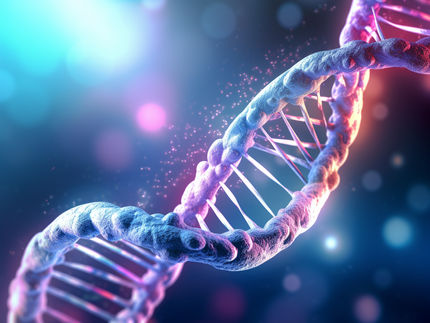Scan of Entire Human Genome Finds Unexpected New Clues on Lou Gehrig's Disease
Advertisement
A comprehensive scan of the human genome has identified more than 50 genetic abnormalities in people with sporadic amyotrophic lateral sclerosis (ALS, or Lou Gehrig's disease), the Muscular Dystrophy Association (MDA) and the Translational genomics Research Institute (TGEN) announced. The most common of these abnormalities have never before been shown to play a role in the disease.
TGen researchers, announcing the findings at an international ALS conference in Japan, said the identified differences implicate genes likely to play a role in cell function that controls nerve adhesion, offering a major new avenue for ALS research. TGen researchers identified the differences by screening DNA samples from over 1,200 people with and 2,000 people without sporadic ALS using state-of-the-art microarray technology by Affymetrix. A new fast-track research funding approach used by MDA and a new microarray technology by Affymetrix that lets researchers quickly scan people's genomes enabled the experiment to be completed in just nine months.
"Our findings indicate these genes produce a sort of molecular glue that attaches motor neurons to muscle. It appears that in ALS the nerve is able to peel off the muscle and, when that happens repeatedly, the nerves die," said Dietrich Stephan, TGen director of Neurogenomics and the study's principle investigator.
According to MDA and TGen, the next steps center around high- throughput screening for drugs that act on the biochemical pathways identified by the DNA screen.
The massive project was funded by a $652,000 grant from MDA's Augie's Quest, a fast-track ALS research program, in collaboration with TGen.
Most read news
Topics
Organizations
Other news from the department science

Get the life science industry in your inbox
By submitting this form you agree that LUMITOS AG will send you the newsletter(s) selected above by email. Your data will not be passed on to third parties. Your data will be stored and processed in accordance with our data protection regulations. LUMITOS may contact you by email for the purpose of advertising or market and opinion surveys. You can revoke your consent at any time without giving reasons to LUMITOS AG, Ernst-Augustin-Str. 2, 12489 Berlin, Germany or by e-mail at revoke@lumitos.com with effect for the future. In addition, each email contains a link to unsubscribe from the corresponding newsletter.

















































